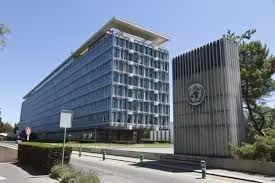Over one billion Africans are still cooking with open fires or hazardous fuels, posing severe health and environmental risks, according to a new report by the International Energy Agency (IEA). The problem, the IEA says, is not only solvable but also contributes as much to global greenhouse gas emissions as the entire aviation industry.
Globally, two billion people—mostly in Africa and parts of Asia—continue to cook using wood, charcoal, agricultural waste, or manure, exposing themselves to harmful air pollution and contributing to deforestation and climate change.
“It is one of the greatest injustices of our time, especially in Africa,” said IEA Executive Director Fatih Birol, noting that four out of five African households rely on such unsafe methods.
Health and Environmental Impact
- The IEA estimates 815,000 premature deaths annually in Africa due to indoor air pollution, primarily from cooking.
- The fine particles released by these fuels are linked to respiratory and cardiovascular diseases.
- Widespread tree cutting for fuel further reduces carbon sinks, intensifying climate change.
Women and children bear the brunt, spending hours daily collecting fuel and maintaining fires, which limits time for education or paid work.
Progress and Potential
At the 2023 Clean Cooking Summit in Paris, global leaders committed $2.2 billion in public and private funds to tackle the crisis. So far, $470 million has been deployed, enabling:
- A stove factory in Malawi
- Affordable clean stove programs in Uganda and Ivory Coast
Since 2010, nearly 1.5 billion people in Asia and Latin America (notably in India, Brazil, and Indonesia) have transitioned to cleaner cooking options. But in sub-Saharan Africa, the number of people without access to clean cooking is still increasing.
A Clear Path Forward
“For once and for all, this problem can be solved with just $2 billion annually,” said Birol — noting that this is just 0.1% of global energy investment.
Solutions include:
- Solar-powered electric cooking
- Biogas and renewable gas
- Liquefied Petroleum Gas (LPG) — a fossil fuel, but far cleaner than wood or charcoal
Long-Term Benefits
- Prevent 4.7 million premature deaths in sub-Saharan Africa by 2040
- Cut 540 million tons of CO₂ emissions per year — equal to the entire aviation industry’s emissions
The IEA calls for urgent action to deliver clean cooking access to hundreds of millions — a shift that is not only technically and financially feasible, but also morally imperative.



